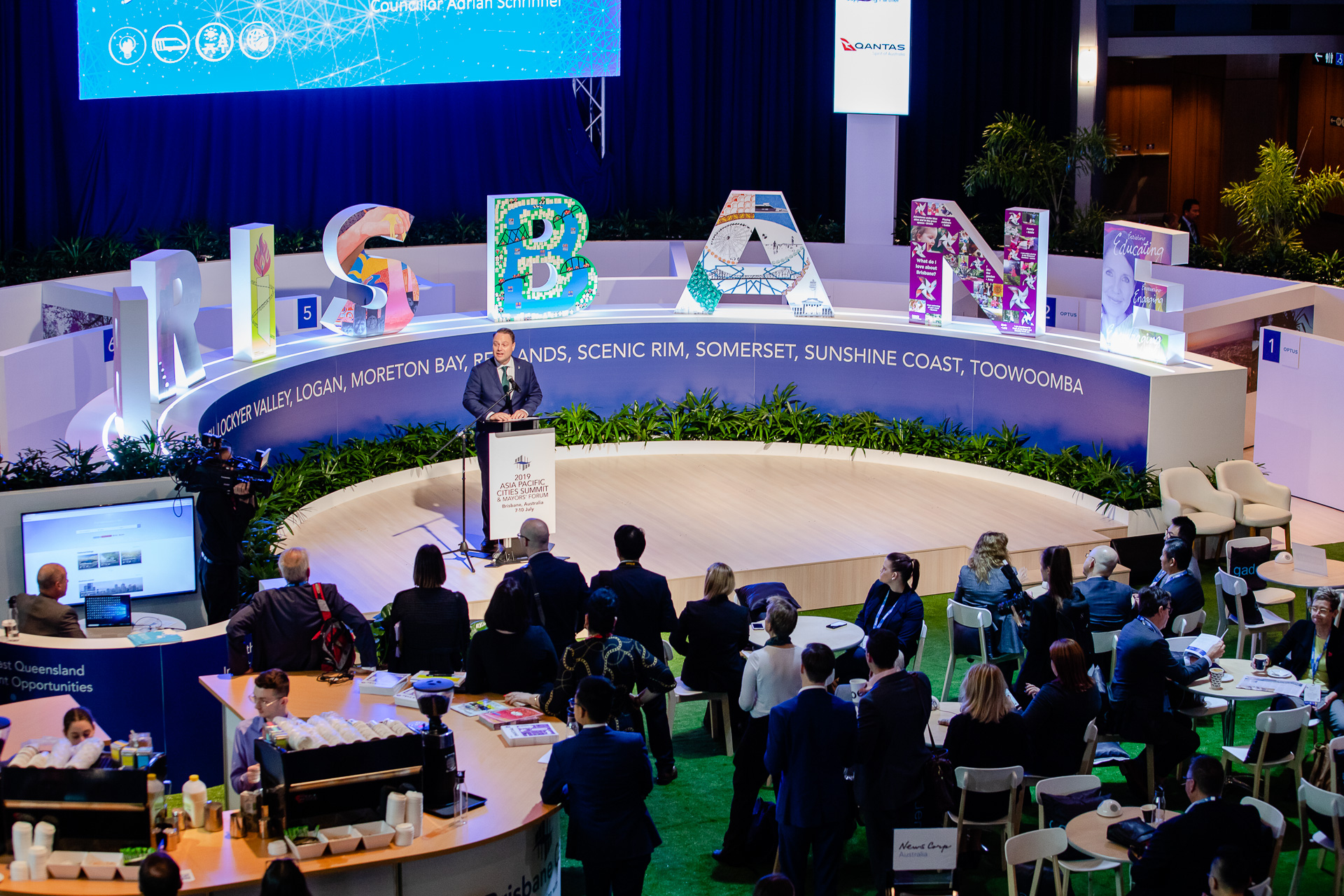Brisbane strikes gold in taking a lead on UN Sustainable Development Goals
By Mike Sullivan at the ASIA PACIFIC CITIES SUMMIT >>
A SIGNIFICANT announcement by UN-Habitat representative Bruno Dercon, at yesterday’s Asia Pacific Cities Summit opening, was the awarding of gold level status to Brisbane City under the United Nations’ (UN) Sustainable Development Goals Cities Global Initiative.
Brisbane is the second city in the world to reach the gold level, which is largely about developing accurate and broad data collection on the city, in order to take action on the pathway to achieving the 17 Sustainable Development Goals (SDGs) agreed through the UN.
Cities worldwide are driving ground-level action on the SDGs and Mr Dercon said Brisbane’s gold certification was both an example and an incentive for participants at the Asia Pacitic Cities Summit to follow. More than 1200 delegates, including 118 mayors from around the world, are attending the summit, which concludes today.
Brisbane was also the first Australian city to receive silver certification in the UN-Habitat’s Sustainable Development Goals Cities Global Initiative in 2022.
The SDGs are an urgent call for action by all countries – developed and developing – in a global partnership brokered by the UN. The SDGs recognise that ending poverty and other deprivations must go hand-in-hand with strategies that improve health and education, reduce inequality, and spur economic growth – all while tackling climate change and working to preserve our oceans and forests.
Cities are at the forefront of driving sustainable development, Mr Dercon said. Cities globally are learning from each other.
Brisbane has now joined La Paz, Bolivia as one of two places in the world to attain gold level and will be the first city to submit a new generation Voluntary Local Review (VLR) to mark the city’s progress against the UN’s 17 development goals.
Brisbane Lord Mayor Adrian Schrinner said the UN had recognised how Brisbane City Council’s practical approach towards sustainability was not just about cutting waste and emissions but also cutting costs for Brisbane’s 1.2 million residents. 
“What this recognition from the UN really means is that Brisbane just keeps getting better,” Cr Schrinner said.
“It means the raft of measures our council team continues to undertake to keep Brisbane clean and green, to preserve our unique lifestyle and ensure we grow sustainably is working. It means our practical approach is a far better way to improve sustainability compared with the pie-in the-sky target setting we see so often from other levels of government.
“For example, we’re introducing the new Brisbane Metro, a fully-electric high-capacity mass transit system that will save 50,000 tonnes of emissions over 20 years but also get people where they want to go more efficiently.
“We’re investing in green bridges with the Kangaroo Point Green Bridge to not only remove 80,000 cars a year from our roads but deliver a long-needed connection across the river from Brisbane’s CBD.
“We’re delivering sustainable new parks like Hanlon Park in Stones Corner which not only meant an ugly century-old concrete drain was removed but delivered a great destination for families and restored a more flood-resilient natural waterway,” he said.
“And we’re doing things for households like slashing the costs of green waste recycling bins to $1 a week, making larger yellow-top recycling bins free, providing rebates for composting equipment and expanding Brisbane’s food waste recycling scheme beyond the current 30 suburbs.
“These practical measures don’t just help households cut down on waste. They help them cut down on cost.”
ends

